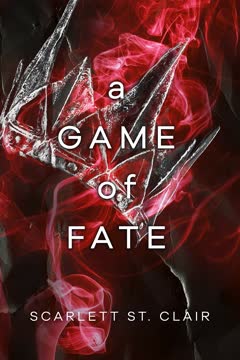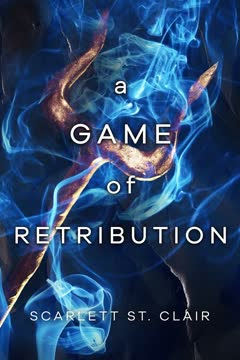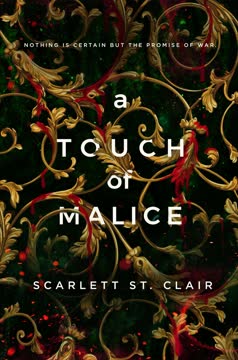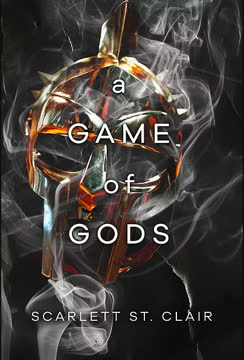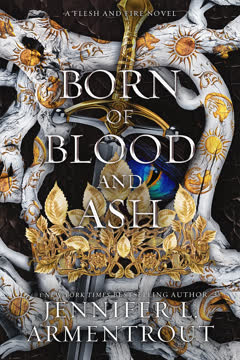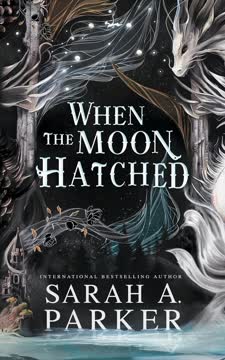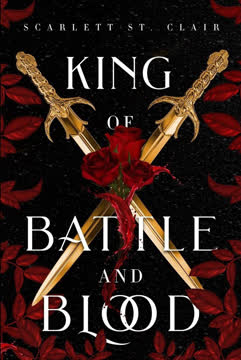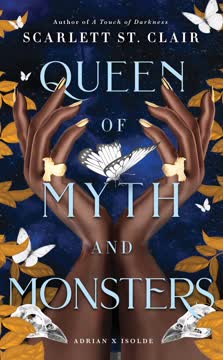Plot Summary
Shadows on the Shore
The story opens with Hades, God of the Dead, walking the sunlit shores of New Greece, where mortals flock for pleasure by day and criminals rule by night. Hades, ever the enforcer of balance, confronts Sisyphus, a ruthless mortal kingpin, at his fishery. Their tense exchange reveals Hades' method: he does not simply punish, but demands penance—forcing Sisyphus to donate his ill-gotten wealth to the homeless. This act is not mercy, but a calculated move to restore balance, reflecting Hades' complex morality. The encounter is laced with threats, violence, and the ever-present awareness of the Fates' influence. Hades' actions are not about justice or vengeance, but about maintaining the cosmic equilibrium, even as he feels the weight of his own isolation and the futility of true redemption.
Bargains and Balance
Hades returns to his club, Nevernight, where mortals and immortals alike seek bargains for their deepest desires. He is soon confronted by Aphrodite, the Goddess of Love, who demands a game in exchange for a favor he owes her. Their card game is more than entertainment—it is a battle of wits and wounds, exposing Aphrodite's longing for love and Hades' own loneliness. When Hades loses, Aphrodite sets a cruel challenge: he must make someone fall in love with him within six months, or release her dead lover from the Underworld. The stakes are high, the terms humiliating, and Hades is left to ponder the impossibility of love for a god who has only ever known duty and darkness.
The Goddess in Pink
As Hades prowls his club, he is drawn to a mysterious woman in a pink dress—Persephone, though he does not yet know her name. Their eyes meet, and an inexplicable, primal connection surges between them, as if the Fates themselves have woven their destinies together. Hades is both enthralled and unsettled by the intensity of his attraction, sensing that this woman is different. When they finally speak, their flirtatious banter quickly turns into a high-stakes game of poker, where the currency is not money, but secrets. Persephone's defiance and vulnerability intrigue Hades, and as she loses the game, she unwittingly binds herself to a contract with the God of the Dead, setting the stage for a relationship that will challenge them both.
Threads of Fate
Hades, disturbed by his encounter with Persephone, seeks answers from the Fates. He learns that Persephone is Demeter's hidden daughter, the Goddess of Spring, and that their connection is no accident—it is the result of a bargain Demeter made with the Fates. Hades is both furious and afraid, realizing he is a pawn in a cosmic game designed to punish Demeter and perhaps himself. The Fates taunt him with the possibility of love, but also with the threat of loss. Hades confides in Hecate, his trusted friend, revealing his vulnerability and the depth of his longing. The chapter ends with Hades torn between hope and dread, knowing that the path ahead will be shaped by forces beyond his control.
A Dangerous Contract
Persephone, after a harrowing encounter outside Nevernight, is brought before Hades in his office. The truth of her identity is revealed, and the mark of their contract appears on her skin. Hades, both guilty and resolute, sets the terms: Persephone must create life in the Underworld within six months, or remain there forever. Their exchange is charged with anger, attraction, and mutual misunderstanding. Hades is determined to challenge Persephone's self-doubt, while Persephone is desperate to prove herself and escape her mother's shadow. The contract is sealed with a kiss of favor, granting Persephone access to Hades' realm—and binding their fates ever tighter.
Love's Impossible Game
As Persephone begins her task, she and Hades are drawn into a dance of attraction and resistance. Their encounters are fraught with tension—moments of tenderness quickly give way to arguments, misunderstandings, and the ever-present threat of the contract. Hades is tormented by his feelings, unsure whether he is manipulating Persephone or being manipulated by fate. Persephone, meanwhile, struggles with her own powerlessness, her longing for freedom, and her growing fascination with the God of the Dead. Their relationship becomes a battleground for control, vulnerability, and the possibility of love, even as external threats—Aphrodite's schemes, Sisyphus' defiance, and Demeter's wrath—loom ever closer.
Underworld Encounters
Hades introduces Persephone to the Underworld, revealing both its beauty and its horrors. Persephone is challenged to see beyond the illusions, to confront the reality of death, judgment, and suffering. She witnesses Hades' role as both punisher and protector, and begins to understand the complexity of his character. Their intimacy deepens, but so do their conflicts, as Persephone questions Hades' bargains with mortals and his capacity for compassion. Hades, in turn, is forced to confront his own shame, his need for control, and his fear of vulnerability. The Underworld becomes a crucible for transformation, testing the limits of their trust and desire.
Divine Intrigues
As Hades pursues Sisyphus and navigates the treacherous politics of Olympus, he is forced to bargain with gods and titans alike. Helios, Poseidon, and Hephaestus each play their part in the unfolding drama, offering aid or obstruction as it suits their interests. Hades' quest for justice is complicated by the machinations of Aphrodite, the ambitions of Triad, and the ever-present scrutiny of Zeus. Meanwhile, Persephone's growing power and independence draw the attention—and ire—of her mother, Demeter. The lovers are caught in a web of divine intrigue, where every alliance is fraught with risk and every victory comes at a cost.
The Mortal and the God
Persephone's dual existence—as a goddess among mortals and a mortal among gods—becomes increasingly fraught. She struggles to reconcile her desire for a normal life with the demands of her divine heritage and her contract with Hades. Hades, for his part, is forced to confront the limits of his own power, especially when faced with mortal suffering and the consequences of his bargains. Their relationship is tested by jealousy, pride, and the ever-present threat of loss. Yet, in moments of vulnerability—shared meals, playful baking, and stolen kisses—they find solace and hope, daring to imagine a future together.
Power, Passion, Pain
The tension between Hades and Persephone reaches a breaking point as secrets are revealed and betrayals come to light. Persephone's powers, long dormant, are finally unleashed in a moment of anguish and anger, proving that she is more than the sum of her fears. Hades, devastated by the possibility of losing her, is forced to confront his own failings and the true nature of love. Their passion becomes both a weapon and a balm, as they hurt and heal each other in equal measure. The Underworld itself seems to tremble with the force of their emotions, and the fate of their love hangs in the balance.
Breaking the Chains
As Sisyphus is finally brought to justice and the threat to the balance of life and death is neutralized, Hades and Persephone are left to reckon with the aftermath of their choices. Hades must let go of his need for control and accept the vulnerability that comes with love. Persephone, in turn, must claim her power and her right to choose her own destiny. Their reconciliation is hard-won, marked by honest confession, mutual forgiveness, and the recognition that true love is not about possession, but about freedom and trust. The chains that once bound them—fear, pride, and fate—are finally broken.
The Price of Immortality
Even as Hades and Persephone find their way back to each other, the realities of immortality and divine politics threaten their happiness. Demeter's wrath, the expectations of Olympus, and the ever-present possibility of separation cast long shadows over their union. Yet, through shared trials—graduation, parties, and the simple joys of mortal life—they learn to cherish the moments they have and to fight for the future they want. The price of immortality is steep, but together, they find the courage to pay it, forging a love that is both fragile and eternal.
Rebirth and Reunion
The story culminates in a series of rebirths—of souls in the Underworld, of Persephone's powers, and of the love between Hades and Persephone. Their journey has been one of pain and passion, loss and longing, but also of growth and hope. As Persephone claims her place as Queen of the Underworld and Hades learns to open his heart, they are finally able to embrace the fullness of their love. Their reunion is not the end, but the beginning of a new chapter—one where they rule together, not as jailor and prisoner, but as equals, partners, and soulmates.
Claiming the Queen
In the final chapter, Hades and Persephone stand together, having overcome the trials set before them by gods, mortals, and fate itself. Their love, once impossible, is now undeniable—a force that reshapes the Underworld and offers hope to all who dwell there. Hades, once the lonely king, finds joy and purpose in Persephone's presence, while Persephone, once powerless and afraid, becomes a goddess in her own right. Together, they claim their thrones, their love, and their future, proving that even in a world ruled by fate, love can be the most powerful force of all.
Characters
Hades
Hades, the God of the Dead, is a figure of immense power and deep isolation. He is both feared and misunderstood, burdened by the responsibility of maintaining balance between life and death. His relationships with mortals and gods are shaped by a need for control, a fear of vulnerability, and a longing for connection. Hades' psychological complexity is revealed through his actions—he is ruthless yet compassionate, calculating yet capable of deep love. His journey is one of self-discovery, as he learns to let go of pride and embrace the possibility of happiness. His love for Persephone transforms him, teaching him that true strength lies in vulnerability and that balance is not just about justice, but about mercy and hope.
Persephone
Persephone, the hidden daughter of Demeter, is introduced as a mortal longing for freedom and self-determination. Her journey is one of awakening—both to her divine heritage and to her own desires. Persephone is intelligent, defiant, and compassionate, but also plagued by self-doubt and the weight of her mother's expectations. Her relationship with Hades is both a source of pain and liberation, forcing her to confront her fears and claim her power. Through trials and heartbreak, Persephone transforms from a passive pawn into a queen in her own right, capable of shaping her own destiny and loving fiercely on her own terms.
Aphrodite
Aphrodite, the Goddess of Love, is both a catalyst and an antagonist in the story. Her own unhappy marriage and longing for affection drive her to manipulate Hades and Persephone, setting the central challenge in motion. Beneath her beauty and bravado lies a deep vulnerability—a fear of being unloved and a tendency to lash out when hurt. Aphrodite's actions are often selfish, but they are rooted in her own pain and desire for connection. Her rivalry with Persephone and her complex relationship with Hades reveal the destructive power of envy and the redemptive potential of forgiveness.
Demeter
Demeter, the Goddess of Harvest, is a formidable presence—protective, possessive, and deeply afraid of losing her daughter. Her attempts to shield Persephone from the world ultimately backfire, driving a wedge between them and setting the stage for Persephone's rebellion. Demeter's actions are motivated by love, but also by fear and pride. Her inability to let go or trust Persephone's choices is both her tragedy and her punishment. Through her, the story explores themes of parental control, the pain of letting go, and the necessity of allowing loved ones to grow.
Hecate
Hecate, the Goddess of Witchcraft, serves as Hades' closest friend and advisor. She is pragmatic, witty, and unafraid to speak uncomfortable truths. Hecate's role is that of a guide—helping both Hades and Persephone navigate the complexities of love, power, and fate. Her presence brings levity and wisdom, and her own independence serves as a model for Persephone's growth. Hecate's loyalty is unwavering, and her interventions often steer the protagonists toward reconciliation and self-acceptance.
Sisyphus
Sisyphus is the embodiment of mortal hubris and cunning. His refusal to accept death and his willingness to bargain, cheat, and kill make him a formidable adversary. Sisyphus' actions threaten the balance of the world, forcing Hades to confront the limits of his own power and the consequences of divine intervention. His story is a cautionary tale about the dangers of pride and the futility of escaping fate.
Minthe
Minthe, Hades' long-time assistant and former lover, is a tragic figure driven by jealousy and unrequited love. Her desire for Hades' affection leads her to sabotage Persephone and ultimately betray Hades. Minthe's actions are both pitiable and infuriating, revealing the destructive power of envy and the pain of being overlooked. Her downfall serves as a warning about the dangers of clinging to the past and the necessity of moving on.
Hermes
Hermes, the God of Trickery, is a source of comic relief and unexpected wisdom. His playful nature masks a keen intelligence and a deep loyalty to Hades. Hermes' interventions often complicate matters, but his insights and support are invaluable. He serves as a bridge between worlds, helping to facilitate communication and understanding among gods and mortals alike.
Hephaestus
Hephaestus, the God of Fire and Craft, is a figure of quiet strength and deep pain. His unhappy marriage to Aphrodite and his physical scars have made him withdrawn and wary. Yet, his craftsmanship and willingness to help Hades reveal a capacity for generosity and forgiveness. Hephaestus' story is one of resilience, illustrating the power of creation to heal and the importance of self-worth.
Thanatos
Thanatos, the God of Death, is a surprisingly compassionate figure, caring deeply for the souls he guides. His presence in the Underworld brings a sense of order and mercy, balancing Hades' harsher tendencies. Thanatos' empathy and dedication make him a quiet but essential force in the story, reminding both gods and mortals of the dignity inherent in every life and death.
Plot Devices
Dual Perspectives and Retellings
The novel is a retelling of the Hades and Persephone myth, presented from Hades' point of view as a companion to the original Persephone-centered narrative. This duality allows for a deep exploration of both characters' inner lives, revealing how misunderstandings, pride, and vulnerability shape their relationship. The use of mirrored scenes and internal monologue provides insight into the psychological complexity of love, power, and fate.
Contracts and Bargains
The motif of contracts—both literal and metaphorical—runs throughout the story. From Hades' bargains with mortals to the binding contract with Persephone, these agreements serve as both obstacles and catalysts for growth. The contracts force characters to confront their desires, fears, and limitations, and ultimately to choose between freedom and love.
The Fates and Foreshadowing
The presence of the Fates as active manipulators of destiny adds a layer of inevitability and tension to the narrative. Their interventions, prophecies, and threats foreshadow key events and force the characters to grapple with questions of free will versus predestination. The threads of fate—both literal and symbolic—bind the characters together, even as they struggle to assert their autonomy.
Symbolism of Life and Death
The juxtaposition of life and death, spring and darkness, is central to the story's themes and imagery. Persephone's task to create life in the Underworld becomes a metaphor for personal growth, healing, and the possibility of love in even the bleakest circumstances. The Underworld itself is both a place of punishment and a space for rebirth, mirroring the characters' journeys from pain to hope.
Power Dynamics and Psychological Games
The relationship between Hades and Persephone is marked by shifting power dynamics, psychological games, and the struggle for agency. Their interactions are fraught with tension—each trying to protect themselves while longing for connection. The narrative structure, with its alternating moments of intimacy and conflict, reflects the push and pull of desire, fear, and trust.
Analysis
Scarlett St. Clair's A Game of Fate reimagines the myth of Hades and Persephone as a modern, psychologically rich romance that explores the complexities of love, power, and destiny. By centering Hades' perspective, the novel delves into themes of isolation, vulnerability, and the longing for connection in a world governed by rules and expectations. The story interrogates the nature of contracts—both those imposed by fate and those we make with ourselves and others—and asks whether true freedom is possible within the constraints of duty and desire. Through the evolving relationship between Hades and Persephone, the novel examines the transformative power of love: its ability to heal wounds, challenge assumptions, and inspire growth. The narrative's use of mythological symbolism, dual perspectives, and intricate plot devices creates a tapestry that is both timeless and deeply personal. Ultimately, A Game of Fate suggests that while fate may set the stage, it is love—messy, painful, and redemptive—that gives life its meaning and hope.
Last updated:
Review Summary
A Game of Fate retells the story from Hades' perspective, offering more depth to his character and the world of Greek gods. Many readers preferred this version to Persephone's, enjoying the added mythology and Hades' interactions with other deities. The book provides insight into Hades' thoughts and motivations, though some found his constant sexual thoughts about Persephone excessive. Overall, readers appreciated the expanded plot and character development, despite mixed opinions on the romance and sexual content.
Hades x Persephone Reading Order Series
Similar Books
Download PDF
Download EPUB
.epub digital book format is ideal for reading ebooks on phones, tablets, and e-readers.
